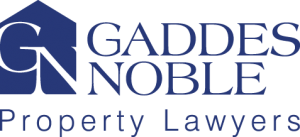Ten Helpful Tips – Choosing a Conveyancing Lawyer
Purchasing a new property is one of the most significant decisions you will make and often part of a life changing event such as a new job, a growing family or just time for a change. Choosing the right conveyancing lawyer is very important and can help ensure the legal side of moving home runs smoothly.
Here are our top ten tips to choosing your solicitor, licensed conveyancer or property lawyer:
- Consider the type of conveyancing service you are choosing
Traditionally you may have only had the choice of a lawyer based on the high street of your local town. Now you can purchase your legal services online or through a call centre service. The modern methods may appear to be more cost effective as the provider may have lower overheads and offer a remote service but can be based miles from your home.
Choose a lawyer based on the method of service you would like and that you are comfortable with. Most traditional firms offer a remote service with documents sent by email and by post for signature rather than you having to attend an office if you would prefer not to.
- Shop around
Always obtain a few quotes before choosing your conveyancing lawyer and ensure the quotes are on a like-for-like basis. The total fees will include legal fees, vat and disbursements and should include all costs associated with the transaction.
- The cheapest isn’t always the best
Buying your home is usually the most expensive purchase you will make, ensuring you get the best advice for the best price is important. Remember, instructing the cheapest legal advice is not necessarily the sensible choice. The experience of a qualified lawyer is invaluable, reputable legal firms employ experienced and qualified property lawyers, who are paid accordingly, to maintain their reputation for providing you with the quality of service you expect.
- Check online reviews
The internet is a great resource for checking customer experience. Most law firms will be on several review sites, where you will be able to read reviews from their previous clients. These reviews will help you to make a more informed choice.
- Watch out for hidden costs, disbursements and VAT
A disbursement is something that your lawyer will pay out for a third-party service such as obtaining your search results and Land Registry registration fees. Check that all disbursements are included and there are not any additional costs that may not have been included in the quote. All conveyancing firms should now display their price information on their website, including disbursements and where additional costs may arise. If this information cannot be found on a firm’s website, you should ask why and obtain the full quotation in writing.
- Referrals and recommendations
A recommendation from a friend or family member to a property lawyer they have used in the past is a great way of making the right choice. You may also receive a recommendation from your estate agent, mortgage advisor or financial advisor, this can include a referral fee which is a payment back to your agent or advisor for them recommending a lawyer. Always compare quotes for legal work, you want to ensure you are paying the same price for the work, even when the work has been referred, as if you had instructed the firm direct. Often agents and advisers insist that you should use their recommended lawyers, this is incorrect, you are always entitled to instruct lawyer of your choice.
- Communication
Good lines of communication are essential from the very beginning. If you prefer to communicate with your lawyer in a particular way, then let them know so you can choose how best your lawyer communicates with you so you can be kept fully informed.
If anything concerns you about the property at the outset, inform your lawyer early on so they can raise a specific enquiry on your behalf. Check what searches are included in your quotation and if something more specific is required then inform your lawyer so that more in depth searches can be carried out, forewarned is forearmed, better to raise an issue early, so this does not delay the process later down the line.
- Ask questions
Never be afraid to ask a question, even if you think it is obvious or what you believe is a silly question. Your lawyer is there to inform you, so ask about shared maintenance arrangements, keeping a caravan or certain types of animals. Enquire about the search results, planning and building regulation approvals, if you are unsure ask. Your property lawyer should will always be happy to answer your questions so that you are more informed.
- Check what you need to pay if the purchase falls through
Sometimes a property purchase falls through for a for a variety of reasons. Ask if your lawyer makes a charge if your purchase does not proceed to completion or if they offer a no sale no fee service. If this service is offered, enquire whether you need to purchase insurance and how much this costs. Often lawyers will make a small charge for the work they have carried out depending on the amount of work they have undertaken and how far along the process your purchase or sale progressed.
- Check exactly what you are buying
As part of the conveyancing service you will be shown the title plan. This plan legally reflects the boundaries to the land and property that you are purchasing. It is important to take the plan to the property to review and ensure everything you are purchasing is included in the legal title, look at the property and the land and check the plan reflects what you see.
At Gaddes Noble, we understand how important buying property is to our clients. We pride ourselves on keeping our client’s informed and supporting them through the process. If you are considering buying or selling a property, consider using us. As an award-winning law firm specialising in property law and conveyancing, we have been recognised for our excellent client service and exacting standards. We pride ourselves on offering a fair and transparent pricing structure. We offer face to face meetings at our office or an online remote service. What ever your preference, we are here to guide you.


